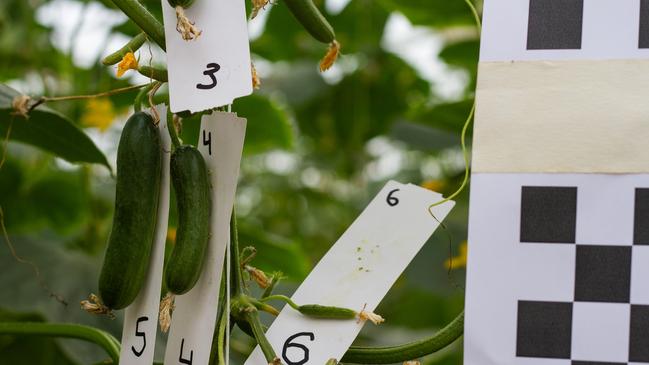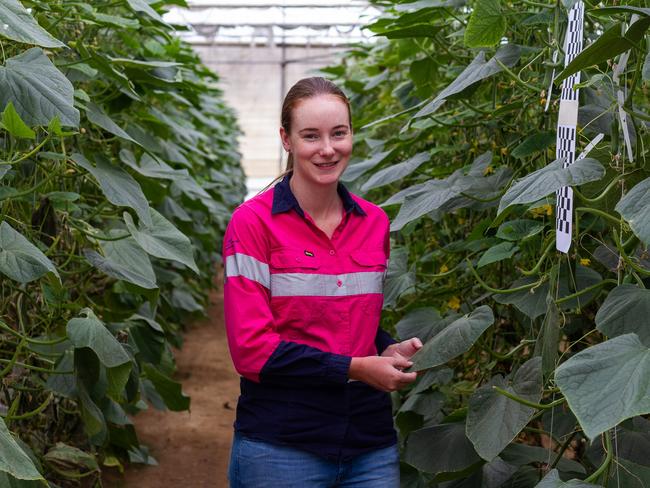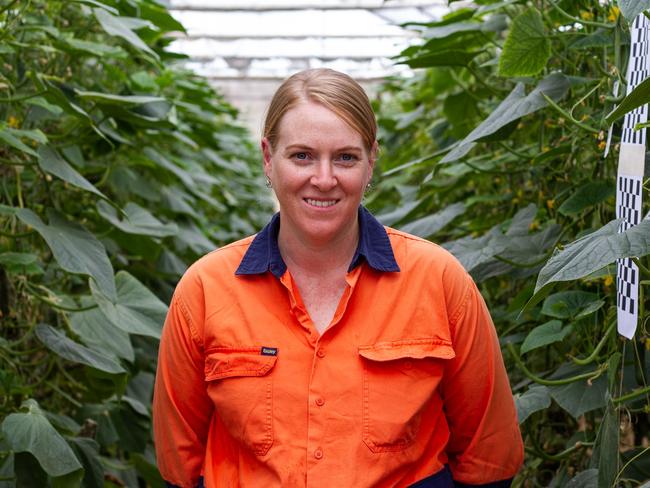The women behind tech changes in Wide Bay Burnett agriculture
Agriculture in Australia is on the precipice of great change and two young Bundaberg women are putting that game changing technology into the hands of Wide Bay Burnett farmers.

Bundaberg
Don't miss out on the headlines from Bundaberg. Followed categories will be added to My News.
Two young Bundaberg women have taken Wide Bay Burnett agriculture by storm, through a $5 million initiative.
Dr Karli Groves and Dr Alison Jensen have spent a combined three years working alongside ag tech developers to provide regional farmers access to pivotal and game changing technology such as drones and AI software.
Neither women had a history in agriculture before studying the subject at the Central Queensland University.
Dr Groves said while she did not grow up immersed in the industry, she always had a passion for horticulture, and followed that passion right through to a PHD in agriculture.
Bigger than some countries: 17 mega Qld properties and who owns them

“I was just always interested in plants, and began my studies in environmental science but found more interest in the agriculture side of things,” she said.
Dr Jensen’s own story was similar: after finding a passion for science-based agriculture, she also pursued a PhD in plant pathology.
Both women found themselves swept into the role when they were approached for an opportunity to be researchers at the The Hinkler Ag Tech Initiative.
A joint project between CQU, the federal government and the Bundaberg Regional Council, the initiative is in the last weeks of a three year commitment and has engaged more than 20 ag tech companies during that time.
“I was working in the industry and they needed someone to head up the implementation side of things,” Dr Groves said.

Now she works alongside Dr Jensen to bring ag technology such as drones and artificial intelligent softwares to farmers.
“The Hinkler Ag Tech Initiative is using the funding we have to put commercial ag tech into the hands of farmers for them to try themselves, without the risky investment,” Dr Groves said.
Dr Groves said farming was on the precipice of a great change and many of the farmers they have engaged with were excited by the new technological opportunities.
“A lot of the growers in the region are pretty keen to try new things, and they’re very receptive to us coming along and helping build that process,” she said.
Technology such as drones had proven hugely successful, replacing tractors and even helicopters for repetitive and expensive tasks.
“In the middle of the wet season drones are very popular; they’ve got the advantage of getting to places conventional machinery can’t,” Dr Jensen said.




